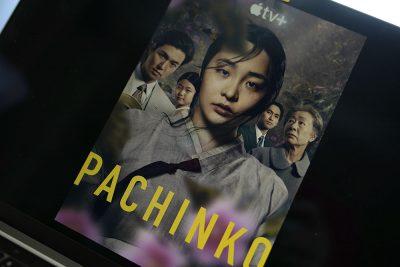In the summer of 2018, my mother gifted me with a book written by a woman not unlike herself.
“Pachinko,” written by Min Jin Lee, was a book I’d think about many times after I first read it as a part of my summer reading list before junior year of high school. As one of the first books I’d read by a Korean American woman and also on the topic of immigration, I could feel the importance of this book even before the announcement of its on screen adaption. For this reason, I had high hopes for the Apple TV show that adapted such a critical story — and it did not disappoint.

At the turn of the 20th century, the Baek family of a small fishing village on the coast of South Korea opens a boarding house to support themselves after the country’s annexation by Japan in 1910. Sunja, the prized and precious daughter of the Baeks, faces a choice after falling in love with Hansu, a married businessman from Japan, and becoming pregnant with his child. Despite the shame she knows she will bring to her family, she refuses to become Hansu’s mistress and instead leaves for Japan with a kind associate pastor named Isak, who proposes to her after hearing about her situation.
My experience reading this book and then watching the show four years later was like no other. Maybe it was seeing the faded colors of the earlier versions of the hanboks I thought I had known so well. It could’ve also been the thought of my own grandparents, who missed Sunja’s birth by just about 15 years and grew up in only slightly better conditions.
Watching the show follow the four generations of a family just wanting to survive, your heart cannot help but ache. The themes of family and resolve come to life on-screen in a way that is so evident in the characters that one is immersed in every aspect of the performance.
The two actresses that play past and 1989 present Sunja were definitely the heart of the show — newcomer Minha Kim rivaled veteran Oscar winner Youn Yuh-jung in her performance of teenage Sunja. From her accented but unwavering voice to the resilience in her soft eyes, Kim embodied Sunja’s early years as a new mother who moves to a new country in the desperate hopes she can provide the best for her son. Her performance perfectly plays into Youn’s portrayal of Sunja in her later years as she reflects on this past while her grandson, Solomon, travels to Japan in present day to close a business deal.
The mixture of the Korean, Japanese and English language is another feat that is tackled successfully by showrunner Soo Hugh. I greatly appreciated the commitment to historical accuracy even with the three countries tied into the story of Sunja and her family. Sunja does anything she can to survive in Japan, all the while missing her mother and how Korean rice tastes. And despite the efforts she made for all those years, we also get to see Solomon’s treatment in the bank offices, constantly seen as inferior due to his heritage. The little difference between the racism Sunja faces in Japan and the racism in Solomon’s workplace compels the question of exactly what our predecessors worked so hard for when so little changed, even decades later. Yet, the same question is answered by the hope that trickles down through each generation — the hope that one day there will be a future in which one’s children will not have to work as hard anymore.
After a great couple years for South Korea with “Parasite”’s historic wins, super boy group BTS’s Grammy nominations and “Squid Game”’s worldwide success, “Pachinko” kicked off 2022 with an important and relevant story to tell — a story that thanks our predecessors for their hard work that paid off in the end.
















































































































